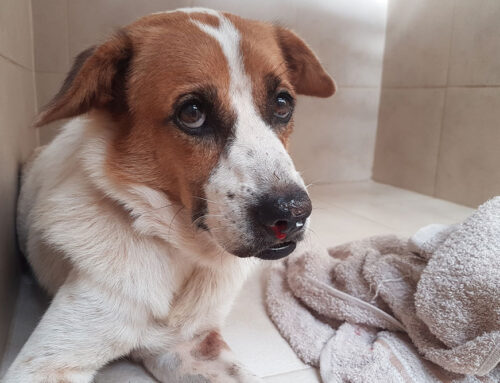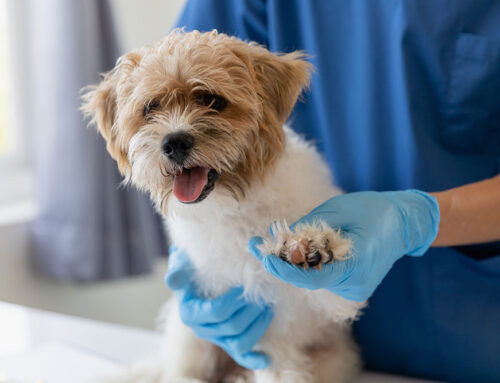Although the ripe odor of “doggy breath” wafting toward your nose as your pet pants at your side may seem normal, foul breath is a sign of dental disease. Periodontal problems are one of the most common conditions diagnosed by veterinarians, and up to 90% of all pets have some level of dental disease by age 2.
Eliminating your pet’s stinky breath may be your main goal of regular dental care, but taking care of your furry pal’s oral health does so much more for their overall health and wellbeing. Learn how to keep your pet’s smile bright, their breath fresh, and their health in great shape.
The importance of dental health for pets
Understanding the significance of dental health is the first step in providing optimal care for your pet. While you may be more concerned about your four-legged friend’s unpleasant breath than anything else, poor oral health also causes numerous other issues. Neglecting your pet’s dental care can lead to:
- Painful gingivitis and stomatitis
- Difficulty chewing and eating
- Tooth-root abscesses
- Resorptive lesions
- Jawbone loss
- Oronasal fistulas
- Heart, liver, and kidney disease
Dental disease signs in pets
Your pet can’t tell you when something is wrong, but they often show subtle signs. With dental disease, your furry pal may be able to hide signs of pain and infection until the condition has reached advanced stages, but you can spot earlier indications through regular dental care measures.
Monitor your pet’s oral health by keeping an eye out for the following indicators:
- Bad breath
- Red, inflamed, or bleeding gums
- Brown, yellow, or gray plaque and tartar buildup
- Worn, loose, or broken teeth
- Chewing on one side of the mouth
- Dropping food while eating
- Avoiding hard food and treats
- Reluctance to be petted around the head and face
Breed-specific dental considerations
Certain breeds are more prone to dental issues, either because of abnormal anatomy or poor genetic oral health. Breeds that typically require more frequent professional dental care include:
- Yorkshire terriers
- Dachshunds
- Greyhounds and other sight hounds
- Brachycephalic breeds (e.g., bulldogs, Boston terriers, pugs)
- Siamese
- Maine Coons
- Abyssinians
Your pet’s lifestyle and medical history also play a role in how often they require professional dental care. For example, if your dog is obsessed with gnawing on anything that fits between their jaws, they may suffer from enamel defects and fractured teeth. Or, if your cat has been infected with feline leukemia virus (FeLV), feline immunodeficiency virus (FIV), or feline calicivirus, they may develop stomatitis and resorptive disease.
By understanding what potential oral health concerns can affect your pet because of their breed, lifestyle, or medical history, you’ll be better prepared to provide a lifetime of healthy, happy smiles for your furry pal.
Establishing a dental care routine for your pet
Prevention is key to maintaining good dental health. A two-pronged approach that includes daily at-home dental care and regular professional care is most effective for preventing periodontal problems.
At-home dental care for your pet may consist of:
- Toothbrushing
- Safe treats and chews
- Food and water additives
- Dental wipes and sealants
- Prescription oral health diet
Professional dental care for your pet consists of regular oral and overall physical exams, dental X-rays, and comprehensive dental cleanings performed by your veterinarian. Many pets require annual cleanings to ward off periodontal problems, but certain health issues and breed predispositions may mean your pet should receive these essential preventive care procedures more frequently.
Choosing the right dental care products for your pet

Not all dental products are created equal. While many claim to banish bad breath and thwart dental disease, that may not always be the case. When searching for the most effective oral health care products for your pet, check for the seal of acceptance from the Veterinary Oral Health Council (VOHC). Products that bear this seal have demonstrated their ability to effectively slow plaque and tartar accumulation.
Your pet’s professional dental care is just as important as the tasks you take on daily, from brushing their teeth to supervising their chewing habits. Give our Bayview Animal Hospital team a call to schedule your four-legged friend’s next oral health exam and comprehensive dental cleaning to help maintain their happy, healthy smile.







Leave A Comment